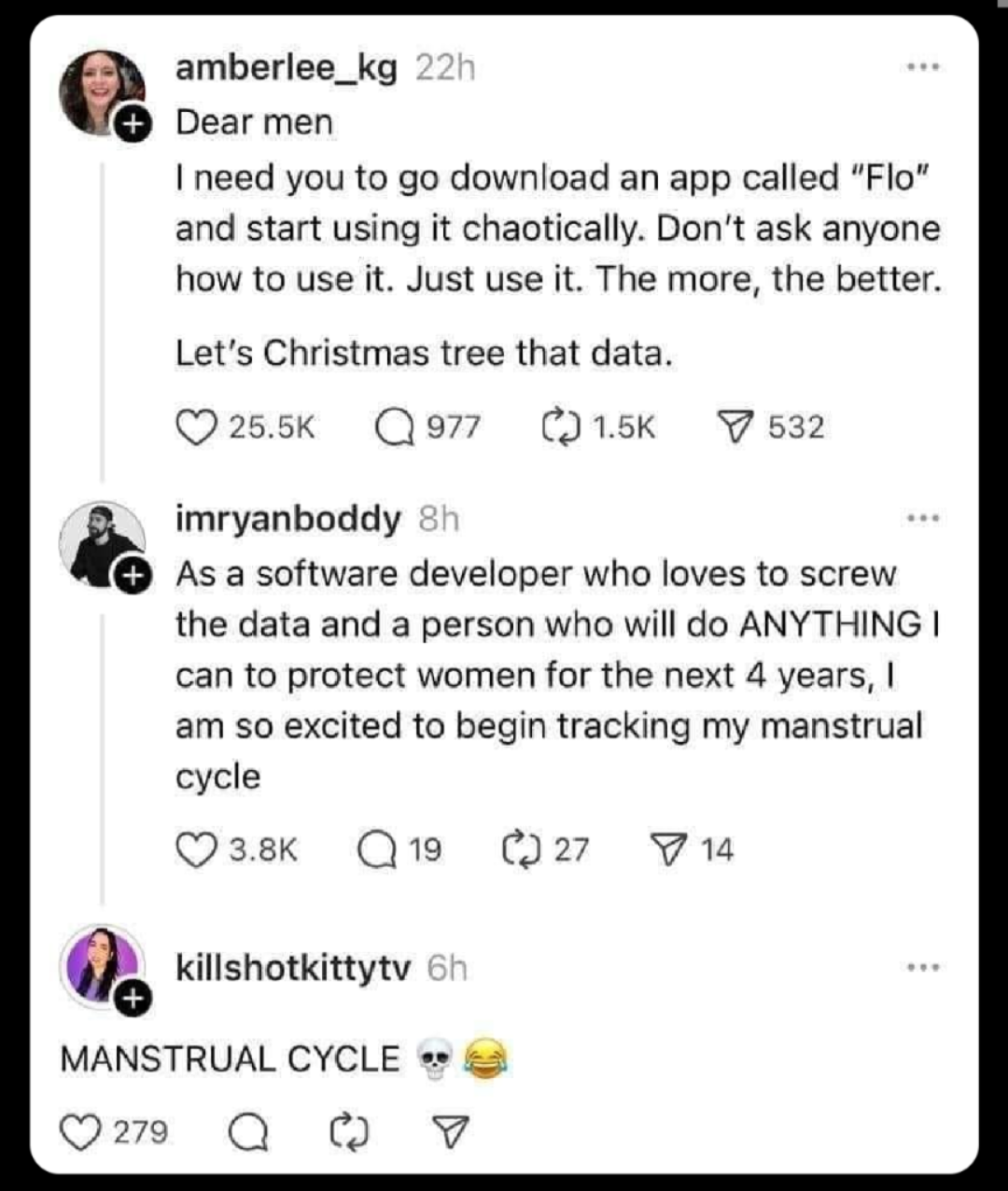this post was submitted on 13 Nov 2024
1167 points (98.6% liked)
Microblog Memes
5772 readers
2707 users here now
A place to share screenshots of Microblog posts, whether from Mastodon, tumblr, ~~Twitter~~ X, KBin, Threads or elsewhere.
Created as an evolution of White People Twitter and other tweet-capture subreddits.
Rules:
- Please put at least one word relevant to the post in the post title.
- Be nice.
- No advertising, brand promotion or guerilla marketing.
- Posters are encouraged to link to the toot or tweet etc in the description of posts.
Related communities:
founded 1 year ago
MODERATORS
you are viewing a single comment's thread
view the rest of the comments
view the rest of the comments

Here's how I think about it:
I deleted Samsung Health from my phone not long after getting it. I started realizing that it's a VERY network intensive app, it wanted a lot of questionable permissions, etc. I fully see the purpose of a Health & Fitness app in the lives of everyday people, I think it can be of legitimate help for encouraging people to exercise and whatever, the health features of that app were definitely developed with the same attitude a hunter baits a trap. It was what they begrudgingly did to get me to step in it.
I ditched Samsung Health because I had visions of them selling that data to my health insurance provider who would then use it as an excuse to make my coverage worse and therefore more profitable. So I'm pretty sure if I was a jew in 1930's Germany I'd delete Synogogr from my phone.
Elsewhere, I've seen women tweet or Tumbl or whatever about refusing to discuss their periods with their doctors. "When was yoru last period?" "It's regular, that's all you need to know." Where's that energy when it's a cell phone app?
I think it was probably a good move to stop using Samsung health. Hopefully you're getting the features you need elsewhere or are staying healthy without it.
I think you are seeing some of that energy as it relates to these apps, hence the OOP, but for practicality sake, and maybe out of naivety, most women are not/don't need to be as concerned as Jews in 1930s Germany. Most of the harm that will be done will be in removing access to future care and likely mainly to start in red states. If apps become a huge source of the issue, I think you'll see a larger shift, but I imagine most of those cases would not need app data as a main source of evidence. You'll see women dying of miscarriages more and more. And abortion will be more difficult to access, but I think there would have to be more cases where period app data was specifically used to convict before much changes. I think it's difficult to accurately convey how important accurate tracking/predictions can be for some people, and how unwilling they would be to give that up. Especially if they are not in a situation where they are likely to get pregnant. The difference between telling your doctor your period is regular vs using an app is that your doctor is just not capable of giving up to the minute personalized information the way an app can. If people's doctors were personally knocking on their door reminding them to take their medication twice a day and then giving them reminders that Wednesdays their symptoms are worse so maybe don't plan a full body gym workout, they'd probably be less likely to withhold the information from their doctor, so I don't really see the two as being directly comparable. Though, I generally agree with the sentiment that it's bad idea to trust anyone with your data, especially health data or data that can be used to support a criminal case against you.